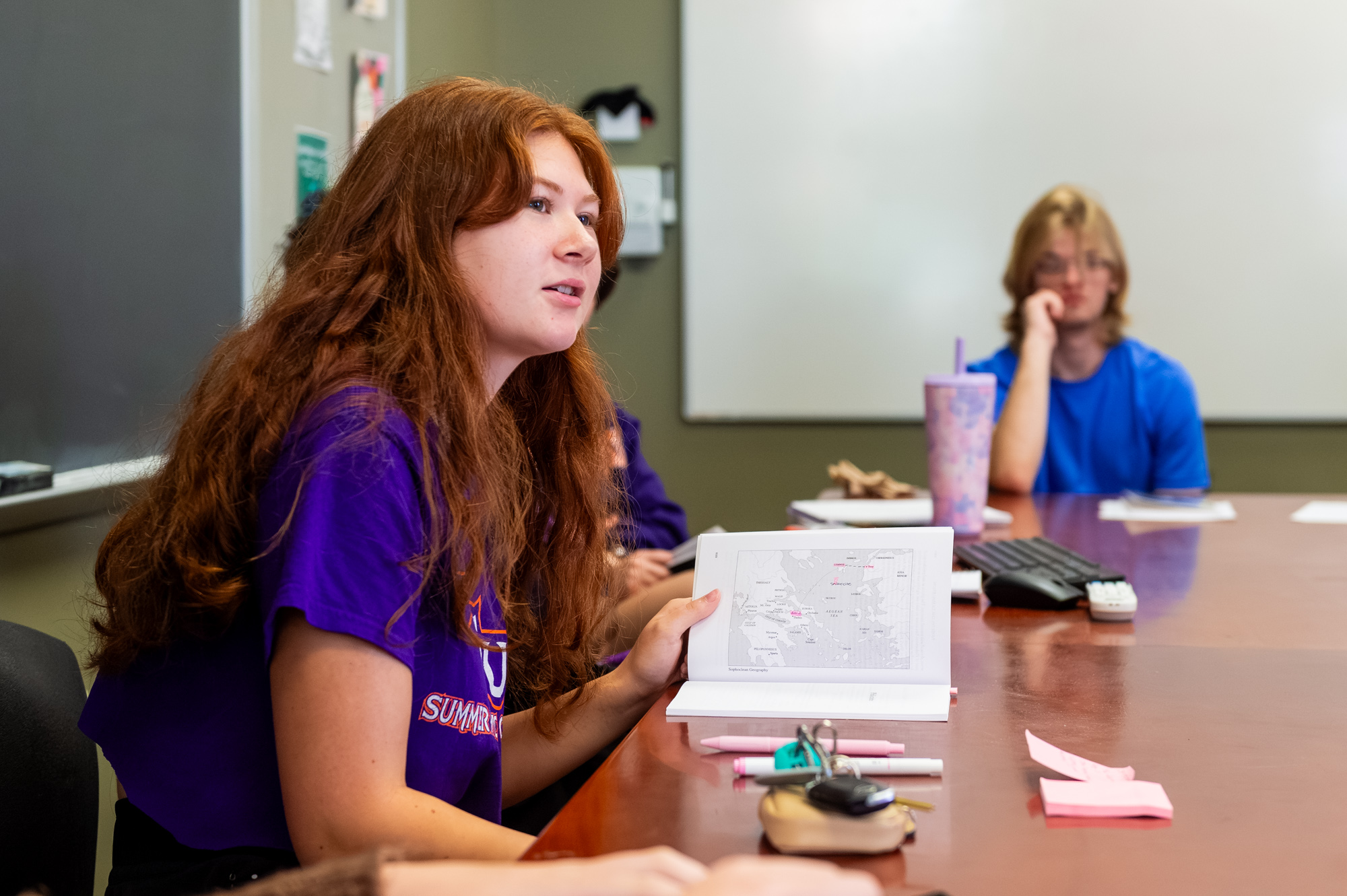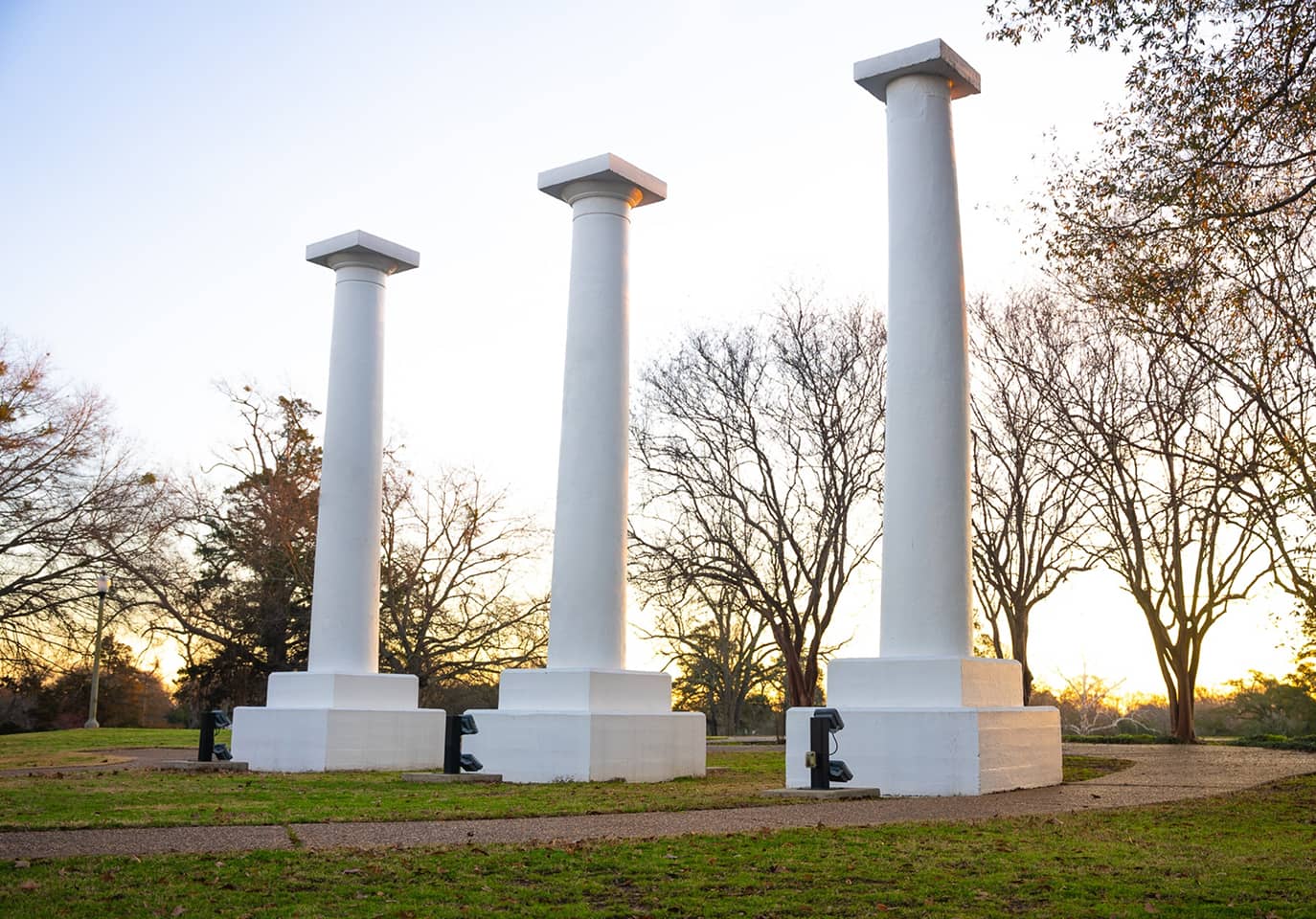Louisiana’s Only Official Honors College in Liberal Arts & Sciences
Common Curriculum
Begin your journey with a shared core of courses that examine the most important ideas and written works from throughout the world and across time (Texts and Traditions I-IV), develop your quantitative and scientific reasoning skills in math and lab-based science classes, develop your writing skills (Critical Reading, Critical Writing) and learn another language (French, Spanish, Latin, or Ancient Greek)—all designed to foster critical thinking, creativity, and interdisciplinary expertise.
Major or Concentration Options:
Senior Thesis
Your experience at Scholars culminates in a senior thesis. You begin it in the spring of your junior year, but actually your entire career at Scholars has been preparing you to produce this original research or creative project.

At Louisiana Scholars’ College, we believe academic excellence shouldn't come at the cost of your chosen career path. That’s why students from nearly any major at Northwestern State University can participate in the Scholars’ College experience.
This certificate develops compassionate and knowledgeable health care providers through the study of medicine and health from the perspective of literature, philosophy, art, and the social sciences.
Core courses (6 hours):
Medical Science courses (6 hours):
Support courses (6 hours; at least 3 hours must be at the 3000-level or above):
The Honors Critical and Analytical Thinking certificate develops students’ ability to evaluate evidence, construct sound arguments, and solve complex problems across disciplines. It awards them a credential in the most sought-after skills by employers and whose “honors” designation indicates it was earned at an advanced level.
Core Courses (10-11 hours; all required)
Support Courses (9 hours):
At least 9 hours of the 19-20 hours must be at the 3000-level or above.
An Honors Certificate in Professional Ethics recognizes exceptional achievement in the study of moral reasoning and ethical decision-making across professions. The honors distinction reflects advanced engagement with complex ethical issues through rigorous coursework, research, and reflection on integrity in professional life.
Core Courses (3 courses; 9 hours)
Support Courses (3 courses; 9 hours; at least 3 hours must be at the 3000-level or above)
The Louisiana Scholars’ College is looking for motivated, intellectually curious students who want to develop their academic and creative talents.
There are no minimum requirements for admission to the Louisiana Scholars’ College, but an ACT composite score of at least a 22 (SAT 1100) and a GPA of 3.1 are recommended. The Scholars Admissions Committee performs a holistic review of the student’s entire application packet. This packet includes, in addition to their NSU application, the following items:
These materials should be submitted to scholars@nsula.edu
However, students who have an ACT composite score of 25 (no subscores below 20) and an unweighted GPA of 3.3 (out of 4.0 in Regents’ or comparable curriculum) are entitled to automatic admission. They do not have to submit an application packet; their application to NSU is sufficient. They just need to notify the Scholars’ College at scholars@nsula.edu of their wish to become a Scholar.
were employed, in continuing education, serving in the military, or volunteering within six months of graduation.
Ensuring intimate, high-quality instruction and mentorship for robust academic engagement.
Contact Us
LOUISIANA SCHOLARS’ COLLEGE
Morrison Hall, Room 110
326 Caspari St
Natchitoches, LA 71497
Keith Dromm, Interim Director
drommk@nsula.edu
318-357-4577
